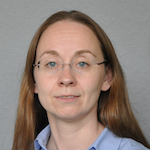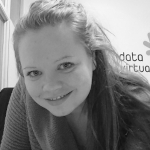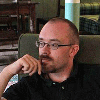Call for Papers
The submission deadline was the 3rd of February 2020.
The call for papers is closed.
Program Committee
The program committee will be presented shortly.

Prof. Dr. Olga V. Kalinina
Helmholtz Institut für Pharmazeutische Forschung Saarland

Anja Baasch
Data Virtuality GmbH

Andreas Geppert
Swiss Re

Michael Banck
credativ GmbH

Danilo Endesfelder
credativ GmbH
Selection process
We are often asked about the selection criteria and process for selecting the presentations among the all submitted proposals that will make up the schedule.
All submissions are looked at and considered by the program committee by reading abstracts, titles and submission notes. The program committee members each vote on every submission with a score of 0 through 9. It is customary to abstain from voting on submissions by coworkers (i.e. vote NULL, not 0). When a presenter has multiple submissions, the committee considers which subject will be the best fit for the conference as we try very hard to not have repeat speakers during the event. Submissions are also de-duplicated to minimize repetition, such that the schedule is balanced overall.
Program committee members are, like every other position in the PGConf.DE organization, an unpaid volunteer position. There are more than 80 talk submissions to every year so spending just two minutes per abstract takes in excess of almost 3 hours, not counting sorting, comparing and grouping by same topic etc.
The talks are then sorted by their average score and selected amongst by the program committee in conference calls.
Abstract
It has shown over the years that a clear and concise abstract is a good indicator of a clear, understandable thought process and well received presentation. The program committee thus puts a very large emphasis on the abstract. To improve your chances to become selected for PGConf.DE:
- make sure the abstract is clear and to the point
- show the knowledge that will be gained by the audience
- be concise, do not post a full script
Subject Relevancy
How clear is the connection to PostgreSQL? Broader topics are of course welcome, if the connection to PostgreSQL is made clear. Known speakers are generally more trusted to connect to PostgreSQL on general topics, so if in doubt make sure to include in the abstract how it relates to PostgreSQL.
It is also important to not try to cover too much ground in a session; there is only so much the audience can absorb in 45 minutes. Trying to cover every GUC in a single talk is, while most likely feasible, unlikely to translate well into a live presentation.
Presentations about potential future features in PostgreSQL should also make it clear in the submission notes where the patch is currently. Is it in a CommitFest or is it still under heavy development?
Submissions about a commercial service offering, or product demonstrations, are not good fits for the main tracks at PGConf.DE.
Speaker profile
Make sure to be very clear in your speaker profile, and supply your full name within the submission process. Although your followers on social media may know you xyz, that might not be true for all the members of the program committee and/or the conference participants. If the speaker profile explains why your are the best speaker for the proposed topic, that is of tremendous value. As the profile is published for all scheduled talks, that may also help attendees select your talk when planning their day at the event.
Travel Sponsorship and Location Requirements
If you require or request anything, please be upfront and open about it in the submission notes, for example if a whiteboard is needed or if travel reimbursement is required for you to attend. We aim to make PGConf.DE as affordable as we can for everyone, but that means that we are unable to fund all speakers for travel and accommodation. The norm is that all regular speakers organize and fund their travel by themselves. If you do require help with travel in order to attend, please let us know and we will do what we can to help you should your talk be accepted.